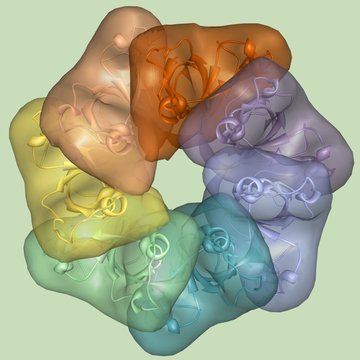

prof. Ing. Bohdan Schneider, CSc., DSc — Program head
Structural Biology and Protein Engineering
This program is focused on research of novel biotechnologically, diagnostically, and medically important biomolecules, proteins and nucleic acids that are constructed using state-of-the-art methods of molecular biology and protein engineering. Structures and properties of the studied molecules are analyzed by complex biophysical methods, such as advanced mass spectrometry and crystallography. Understanding structures of the studied molecules and their mutual interactions helps us to modify them to increase their desired biological activities so that they can be used for diagnostics of diseases, as drugs or as advanced materials.
Goals:
- Newly determined 3D structures of biologically important proteins, characterization of their biophysical properties and description of their structure-activity relationships
- Design and preparation of novel proteins developed to specifically bind to biotechnologically, diagnostically, and/or medically important molecules
- Modifications of the studied enzymes leading to their improved function, e.g. increased temperature stability or enzymatic efficiency
- Development of novel mass spectrometry methods, application of these methods to determination of structural and topological properties of biomolecular systems
- Explanation of the specificity of protein/DNA interactions at atomic and submolecular scale and modifications of protein and/or DNA molecules influencing specificity of their interaction
- Bioinformatic tools and expertise to analyse sequential and structural features of the studied biomolecules
Application potential
The program opens wide possibilities for commercial outputs. For instance, newly developed recombinant proteins with high binding affinity to other biomolecules can function as novel drugs against autoimmune diseases, viral infections or cancer or they can serve as agents to diagnose these diseases. Natural compounds will be modified with the goal to improve their antibiotic activity. Structural studies of enzymes will help increase efficiency of waste water treatment, support development of materials for green energy as biological cells, or of biotechnological treatment of food. A part of the program focused on the development of robust and sensitive methods for mass spectrometric characterization of structural and topological properties of proteins will enable fast characterization and validation of generic biologics and biosimilars.
